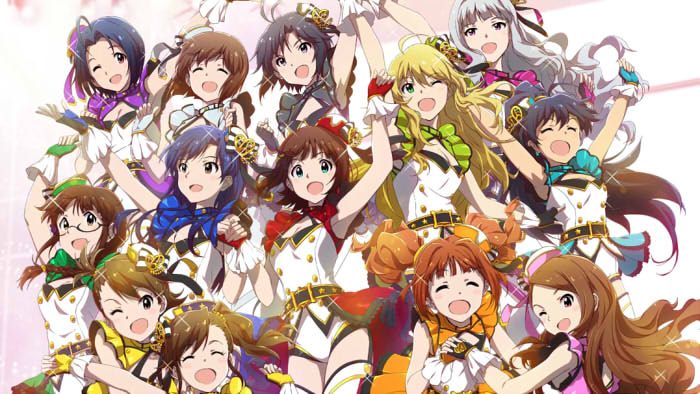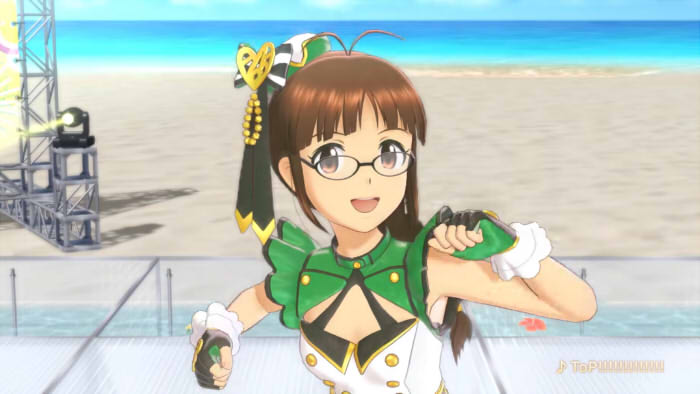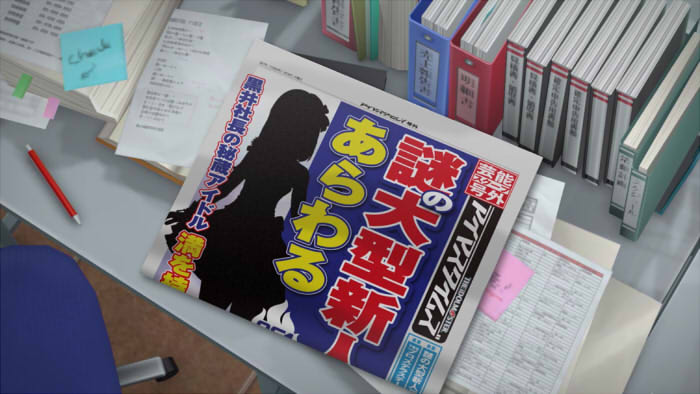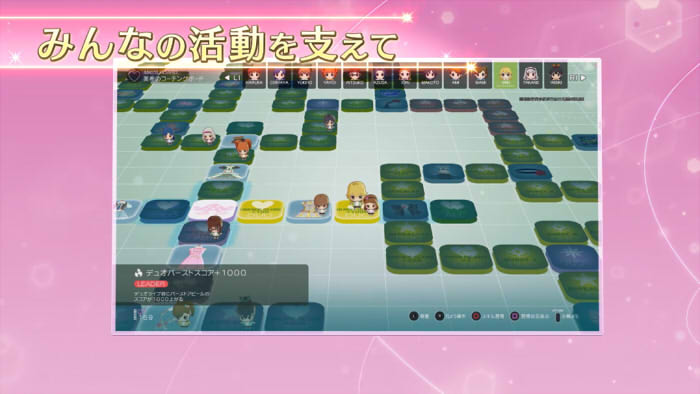iDOLM@STER Stella Stage

It came of at least something of a surprise when they suddenly dropped a short PV for a previously entirely unannounced and unteased PS4 iDOLM@STER game, Stella Stage, during the Sony TGS Press Conference event earlier today.
It’s pretty safe to say that the franchises first outing on PS4, last years iDOLM@STER Platinum Stars, was ultimately something of a disappointment. A lot about the games presentation was fantastic – a nice new visual make-over and a pleasant atmosphere inspired by the movies training camp made a pretty good first impression, and the 765Pro All Stars shows were fabulous – but in the end it was a game that felt like a whole lot of stick without any carrot. That is to say, there was almost zero sense of progression to it – aside from there being little in the way of a narrative thrust to it, and your idols progression simply boiled down to repeating things until their numbers increased. Costumes, infuriatingly, were locked behind random drops, with anything good being incredibly rare – unless you dropped actual money on a P-Drop, a consumable which temporarily improved your chances. Ultimately, it felt a lot like it had taken a few too many cues from mobile games, without providing the steady stream of the kind of content those games have that make it feel almost (almost) worthwhile to play. This was particularly bad given you could enjoy a better implementation of these things for free by pulling out your phone and playing Starlight Stage instead.

It was a pretty disappointing come-down from the previous home game, One for All. Admittedly, One for All was a bit of a mess when it launched as well – it didn’t feel anywhere near as bereft of content as Platinum Stars did, but it was still a little thin coming from iM@S2. That was largely corrected by a free content patch they put out a few months after launch, though, and the paid DLC packs added a whole lot to the experience by ultimately providing a fairly satisfying character arc for every idol, including a new solo song for each of them. Even forgetting that, your characters development as an idol was managed through an RPG-like skill-tree rather than being just pure numbers, and whilst it wasn’t exactly complicated, it did feel like it made a discernible different beyond just numbers slightly increasing, particularly by the time you got to your final show-downs against rival character Leon and things started to be about managing character-unique traits.
Speaking of final show-downs, one of the big things about Platinum Stars is that they actually introduced a proper rhythm-game system to the performances. This sounded great on paper, but aside from never getting quite as difficult as you may have liked, it ended up stripping the game of the whole tactical element that came with the rival festival battles in One for All or even iM@S2 – progression was more strictly tied to your numbers, which ultimately just boiled down to repeating concerts until your numbers got big enough to pass, or hoping you got decent costume drops (or, god forbid, drop money on it). Even if that wasn’t the case, though, it also meant that every single performance played exactly the same – whilst the core mechanic in OfA and iM@S2 was always the same, there were at least a couple of different performance categories which required a slightly different approach to passing, which was sorely missing in Platinum Stars. What made matters even worse was that, unlike prior iM@S games, there was no incentive to switch songs on occasion. Infact, the opposite was actually true – songs actually received buffs after being performed a certain number of times, which meant that you were actually effectively penalised for performing something different.
Ultimately, though, I’m not sure I actually know anyone who played Platinum Stars for more than a couple of weeks, even amongst those who whaled for most of the DLC content for the prior instalments. The game provided no incentive to stay engaged.

Still, the longer PV for Stella Stage provides a lot to be optimistic about. I mean, they’ve announced a few niceties outside of the PV, like the removal of P-Drops, and the fact that Platinum Stars DLC will import into the game, but there’s a bunch of things in there to suggest that the game has actual content this time around. For one, they’ve revealed that 961Pro have a new rival idol in this game. This doesn’t sound like much on the face of it, particularly given they’ve revealed nothing about her or how she’ll factor into gameplay, but at least it provides some kind of narrative focus – or at least a much-needed goal – into the game. They’ve also rather notably introduced the coaching board, which looks to allocate new skills and other unlocks behind some kind of boardgame-like layout, though the exact nature of the progression around still remains unclear. Some of the other things discussed, like being able to allocate idols off-time, suggests that there might actually be more communication events this time around too.

The actual performance gameplay – or at least what has been revealed thus-far – looks unchanged, but as I say, one of the biggest issues with Platinum Stars was the lack of any kind of tangible reason to keep playing once you’d seen the All Star shows. Stella Stage at least looks like they’ve taken some steps to significantly improve that.
Anyway, game is out the 21st of December, so it’ll probably be something to be doing of Christmas, I guess!

2017-09-19
#
I think you went too easy and yet too hard on Platinum Stars. It has a lot of problems as you described but ultimately it came down to gating a lot of the content behind pay walls, grinding, or future games (as we see now). No big deal, as you described.
Big deal: IS YAYOI NOT POOR ANYMORE
2017-09-19
#
Yeah, I mean, what the hell, man? Where am I supposed to get my poor-moe from now?